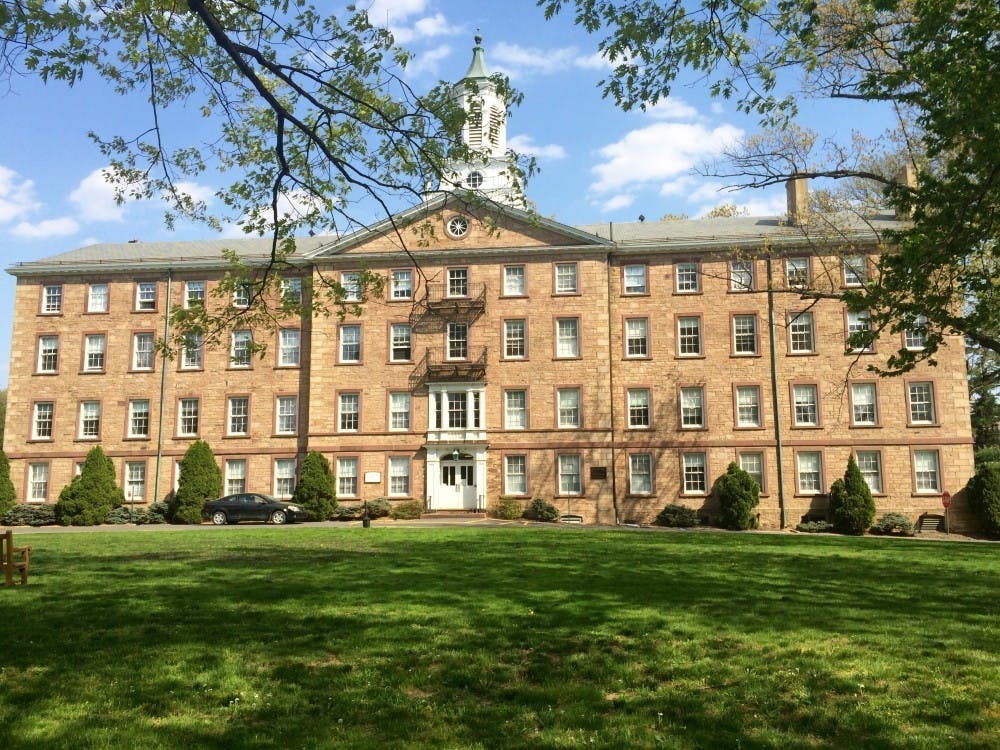M. Craig Barnes, current president of the Princeton Theological Seminary (PTS), announced his intention to retire after the 2022–2023 academic year in a letter issued to the Seminary community on Feb. 2.
With the decision to step away from his position, Barnes, an alumnus of the Seminary, concludes his professional career in the same place it began. Barnes graduated from the Seminary in 1981 with a Master of Divinity (MDiv) degree.
In the interim, Barnes worked in pastorates in Wisconsin, Washington, D.C., and Pennsylvania, where he made his educational debut as a professor at the Pittsburgh Theological Seminary. In 2013, he returned to PTS where he has since served as the school’s seventh president and a professor of pastoral ministry.
By the time of his projected retirement, he will have served as the Seminary’s president for over 10 years — a tenure that, according to PTS Dean and Vice President of Academic Affairs Jacqueline Lapsley, is marked by personal ambition and a commitment to institutional progress.
In a written statement to the ‘Prince,’ Lapsley pointed to Barnes’ leadership in the Seminary’s ongoing effort to reckon with the institution’s fraught history of involvement with slavery.
“President Barnes has led a sea of change in PTS’s campus culture over the last nine years,” she wrote. “By commissioning the historical audit on the Seminary’s relationship to slavery, President Barnes led our campus through the painful and important process of confessing the sins of the Seminary’s relationship to slavery; he then also commissioned the task force that formulated what came to be Board-approved tangible acts of repentance.”
Under Barnes’ leadership, PTS has made substantive progress toward the ethnic and racial diversity of its affiliates. Thirty percent of faculty currently identify as people of color, compared to 10 percent at the time of his hiring, according to Lapsley. Additionally, more than 30 percent of the current student body identify as people of color.
Beyond his administrative role, Barnes’ absence will also be felt in the classroom — the Seminary president has generally taught one course per academic year on topics of pastoral leadership and congregational care.

“His courses are always fully subscribed to overflowing, attracting many students who wish to take advantage of the practical wisdom he gleaned during his long and successful vocation as a minister in several prominent pulpits nationwide,” said Robert Dykstra, a professor of pastoral theology and Barnes’ colleague in the Seminary’s department of practical theology.
One of Barnes’ former students, third-year MDiv candidate Peter Manning, echoed this point in a statement to the ‘Prince.’
“What distinguishes his gifts as a professor is his deep knowledge of theology and scripture combined with his decades of practice as a pastor in congregational settings,” Manning wrote.
“President Barnes has a deep knowledge and understanding of the pastor’s soul and could speak about that in a way that other professors cannot,” he continued. “[H]e has a gift for narrating material that lands in the student in a very specific and grace-filled way.”

Another former student, second-year MDiv candidate Wesley Rowell, recalled his experience being taught by Barnes in the fall of 2021, noting the president’s passion for educating.
“We were well served by his leadership,” Rowell said in an email, adding that “it was clear to me (and the entire class I think) that Dr. Barnes was in love with what he was doing.”
Rowell also serves as a student representative on the Seminary’s presidential search committee, which launched its official web page on Monday, Feb. 21, marking the first steps toward the selection of Barnes’ successor. The committee’s site calls for a “strategic leader,” who “will embrace the institution’s commitment to leading with faith in all areas of life.”
As for Barnes, a successor who matches his commitment to enacting positive change is a top priority.
“[T]here is a lot of work to get done in the next year,” Barnes told the ‘Prince.’ “We have tried during my tenure to re-tool the Seminary for a changing church in a changing society. But these changes continue to come rapidly. So my hope is that my successor will continue this ongoing process of reform.”
Barnes emphasized that he remains focused on the year ahead, sharing with the ‘Prince’ that he is not yet sure of his plans after retirement.
“Serving [the Seminary] these 10 years has renewed my faith in the future,” he stated, “because I have seen up close the high caliber of leadership within our students.”
He also added that “[i]t is time to move into the next season of my life with my wife.”
Tess Weinreich is a news staff writer and features contributor for the ‘Prince.’ She can be reached at tw7353@princeton.edu.








